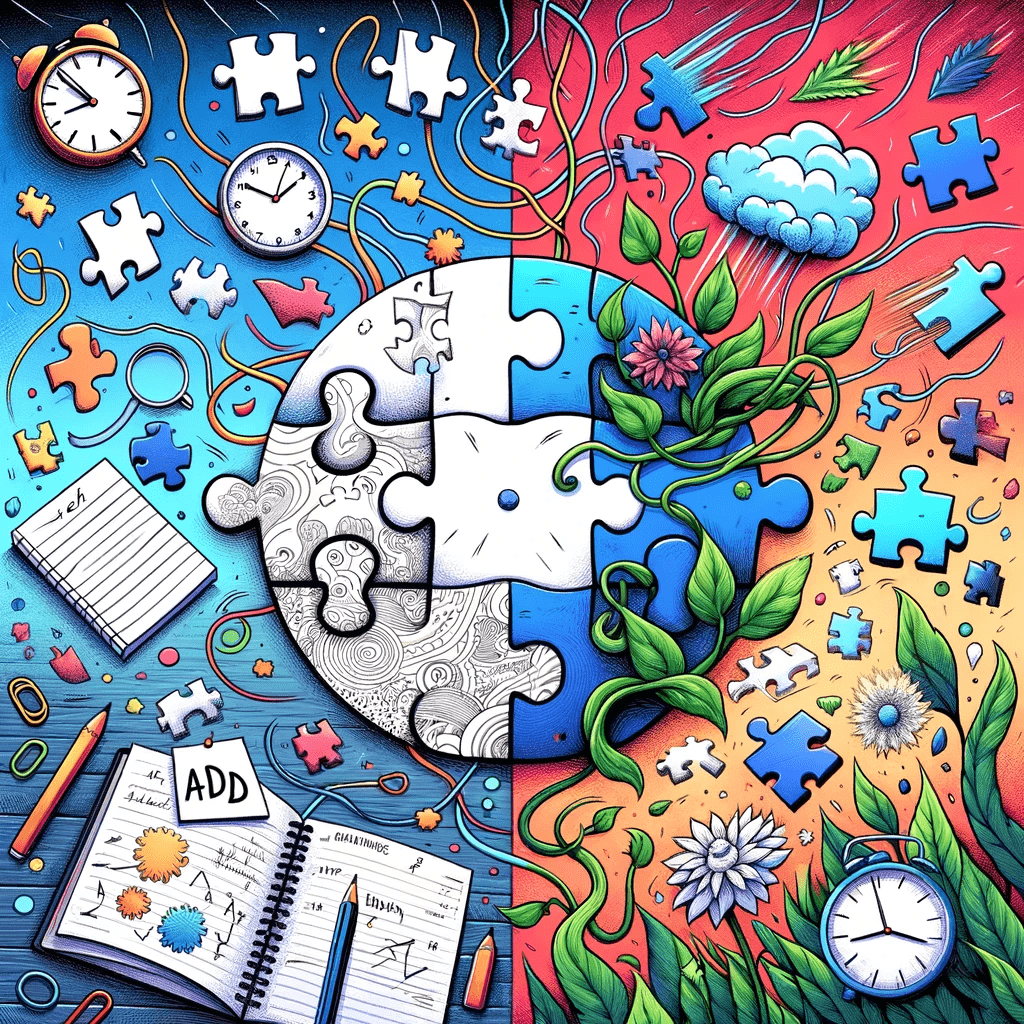When your partner has ADHD
It can be difficult to date someone with ADHD, but it doesn’t have to be a deal-breaker.
ADHD is a typical disorder that can lead to symptoms like hyperactivity, inattention, disorganization, and other issues that interfere with daily functioning. While there are resources for care, therapy, and coping mechanisms, it’s critical to recognize that ADHD is a chronic condition.
Yet you can still be in a happy, romantic relationship, with a spouse with ADHD.
You’ll want to learn about their illness as you start a relationship or get to know them better to understand how it can impact the relationship.
How romantic relationships can be affected by ADHD
Everyone has a different form of ADHD. Despite not being diagnosed, your companion may show apparent symptoms of the illness. You can receive treatment right now despite having a diagnosis, or you might be receiving treatment but still experiencing symptoms.
While there are several forms of ADHD, the following are some typical symptoms and signs:
- Difficulty concentrating
- Low tolerance for frustration
- Carelessness
- Impulsive behavior
- Dissatisfaction
- Disorganization
- Chaotic way of life
These signs might occasionally cause problems in a relationship. If your partner thinks about anything else, they could find it challenging to listen to you. Your partner may set a goal for themselves that they cannot meet. Your partner can say they’ll run an errand but completely forget about it.
Remember that many beneficial characteristics of ADHD can strengthen your relationship, including adventure, acceptance of oneself, divergent thinking, and sublimation.
Building a long-lasting relationship requires understanding your partner and their ADHD.
Tips for coping with ADHD in relationships and finding peace and love
- Get educated
Start by learning more about ADHD to understand your compatibility better. Knowing more about the disease will help you distinguish between situations brought on by ADHD symptoms and those just a result of your love interest’s personality.
For example, although if you point it out, you can conclude your partner doesn’t love you and is upset if they don’t seem to give you their whole attention. But it can just be a symptom unconnected to how they feel about you.
- Wait to commit to something long-term.
It’s only sensible and reasonable to refrain from joining your partner in making reckless decisions that can have long-term implications during the height of passion, given that impulsivity is a documented component of ADHD.
Someone can change from wanting to go on dates four or five evenings a week to simply attending whatever is in front of them. Like a usual honeymoon phase, captivated hyperfocus on the other partner might fade.
The other individual might feel in charge and rebel if one person does all the effort. No matter how you slice it, the connection eventually turns unhealthy.
- Discover your deal-breakers.
You can’t change somebody unless they’re willing to change, so being in relationship with anyone may help you figure out what you’re willing to live with and what your own “red flags” are.
While each person’s experience with ADHD may differ, several of the frequent symptoms outlined above might result in more severe problems if the illness is not adequately controlled.
These signs may manifest as:
- A lack of drive
- Financial management issues
- Uncontrolled expenditure
- Chronic unemployment
- Drug usage disorder
- Anger problems
You may have to accept, for instance, that your companion doesn’t work a full-time job. There are innumerable unions where one partner doesn’t really work but nevertheless makes a contribution in other ways.
- Choose your must-haves
Nobody makes a wedding commitment to be the best spouse they can be, goes the proverb. No one dates or marries for that reason.
The administrative elements of their lives may be difficult for your partner to manage, though, as executive dysfunction is one of the hallmarks of ADHD. This typically worsens into a serious problem for the relationship.
So, ask yourself: Can you delegate, contract, or find another means to accomplish your must-haves?
- When a relationship develops and learns together, they stay together.
A totally healthy relationship cannot be established by one person. It is important for couples to pursue concurrent education. Develop coping skills and plan your approach to future interactions.
The Takeaway
With an ADHD spouse, romantic relationships are still possible and even thriving. It is beneficial to have understanding, acceptance, and a readiness to collaborate while reviewing and adjusting your strategy as necessary. And the key to their well-being and yours as a pair is adequate treatment for ADHD symptoms.
A loving, caring, and long-lasting relationship can be achieved by following these stages jointly and resolving problems as they come up.
It’s OK to ask for space.
No matter how long you’ve been dating your partner or how recently you started dating them, it’s entirely acceptable to want and ask for some alone time.
It’s possible that you have a highly taxing job and need 30 minutes to reflect when you get home. “How can we make this happen?” is the question. There’s a chance your partner might see this request as a form of rejection, so it’s essential to consider their feelings and explain this isn’t the case.
Discuss why you require it and why it has significance for you. Recognize the other person’s emotions and help them through them.
Sources
Gardner, D. M., & Gerdes, A. C. (2015). A review of peer relationships and friendships in youth with ADHD. Journal of attention disorders, 19(10), 844-855.
Wymbs, B. T., Canu, W. H., Sacchetti, G. M., & Ranson, L. M. (2021). Adult ADHD and romantic relationships: What we know and what we can do to help. Journal of Marital and Family Therapy, 47(3), 664-681.
Rokeach, A., & Wiener, J. (2018). The romantic relationships of adolescents with ADHD. Journal of Attention Disorders, 22(1), 35-45.
Overbey, G. A., Snell Jr, W. E., & Callis, K. E. (2011). Subclinical ADHD, stress, and coping in romantic relationships of university students. Journal of attention Disorders, 15(1), 67-78.
Knies, K., Bodalski, E. A., & Flory, K. (2021). Romantic relationships in adults with ADHD: The effect of partner attachment style on relationship quality. Journal of Social and Personal Relationships, 38(1), 42-64.
Margherio, S. M., Capps, E. R., Monopoli, J. W., Evans, S. W., Hernandez-Rodriguez, M., Owens, J. S., & DuPaul, G. J. (2021). Romantic relationships and sexual behavior among adolescents with ADHD. Journal of attention disorders, 25(10), 1466-1478.





